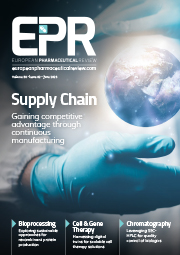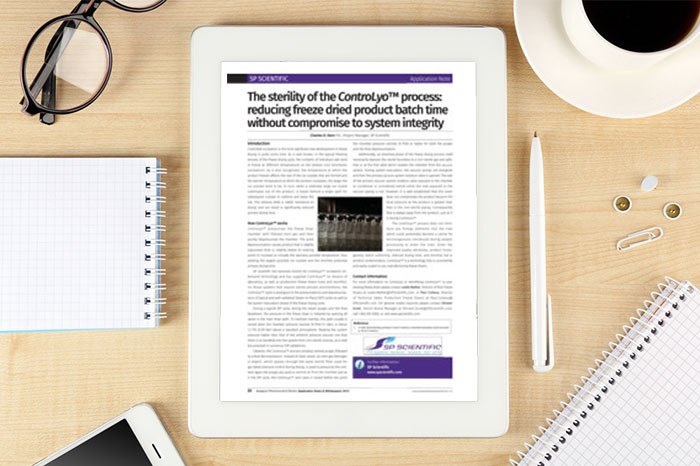Application Note: The sterility of the ControLyo™ process: reducing freeze dried product batch time without compromise to system integrity
Posted: 18 January 2016 | SP Scientific | 2 comments
As is well known, in the typical freezing process of the freeze drying cycle, the contents of individual vials tend to freeze at different temperatures as the shelves cool (stochastic nucleation). As is also recognised, the temperature at which the product freezes affects the size of the ice crystals that are formed and the warmer temperature at which the product nucleates, the larger the ice crystals tend to be. In turn, when a relatively large ice crystal sublimates out of the product, it leaves behind a larger path for subsequent crystals to sublime and leave the vial. This reduces what is called ‘resistance to drying’ and can result in significantly reduced primary drying time.
How ControLyo™ works
ControLyo™ pressurises the freeze dryer chamber with filtered inert gas and then quickly depressurises the chamber. The quick depressurisation causes product that is slightly subcooled (that is, slightly below its melting point) to nucleate at virtually the warmest possible temperature, thus yielding the largest possible ice crystals and the shortest potential primary drying time.
This application note is restricted - login or subscribe free to access


Why subscribe? Join our growing community of thousands of industry professionals and gain access to:
- bi-monthly issues in print and/or digital format
- case studies, whitepapers, webinars and industry-leading content
- breaking news and features
- our extensive online archive of thousands of articles and years of past issues
- ...And it's all free!
Click here to Subscribe today Login here
Related content from this organisation
- Expert View: Reaching for the (lyo) stars – the unmatched development and scale-up platform for freeze drying
- Manufacturing, Packaging & Logistics In-Depth Focus 2019
- Application Note: The sterility of the ControLyo™ process: reducing freeze dried product batch time without compromise to system integrity
- Application Notes & Whitepapers supplement 2015






to whom it may concern
i am interested in receiving papers
gloria
looking forward to receive more info on your process in freeze drying